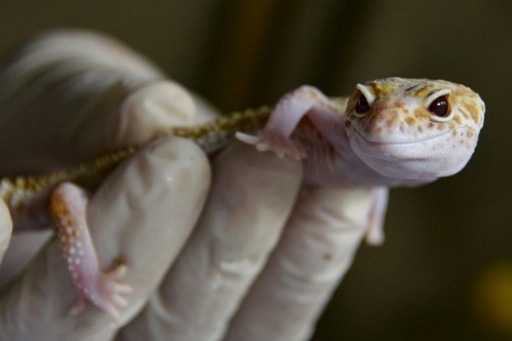The world’s oldest species of gecko has been discovered by an international team of paleontologists, according to a press release issued on Wednesday by the Royal Belgian Institute of Natural Sciences,IRSNB.
Called Dollogekko dormaalensis, it lived in Belgium.
The researchers analysed a fossil found in Zouteleeuw, Flemish Brabant, and kept at the IRSNB. They discovered that it belonged to a previously unknown species of gecko, and the oldest one described to date.
The paleontologists only had the fossilised frontal bone of the lizard to work with, but its unique shape and the ornamentation of its outer surface provided the researchers with enough information to reach their conclusions.
The skull bone will now be used to describe the species and will continue to be kept in the IRSNB collections.
During the Eocene period, 56 to 34 million years ago, it was much warmer in Europe and there were therefore heat-loving animals, including geckos, the IRSNB explains.
These lizards today live mainly in tropical and subtropical regions. During the Paleocene-Eocene Thermal Maximum (56 million years ago), tropical and subtropical conditions extended much farther towards both poles.
Rising temperatures during the Lower Eocene had led to rising sea levels and many parts of Eurasia were flooded. Europe was an archipelago made up of several islands, according to the IRSNB.
“In view of global climate change, it is essential to understand the distribution of thermophilic tropical species of the past, as well as the distribution of certain infectious diseases such as malaria,” said Andrej Cernanský, the lead author of the study.

